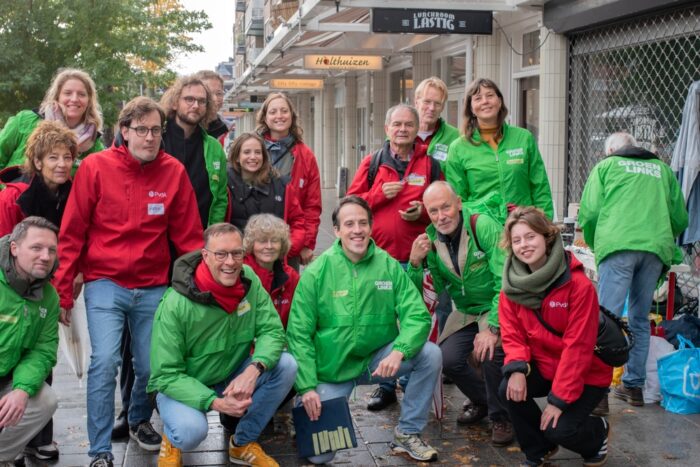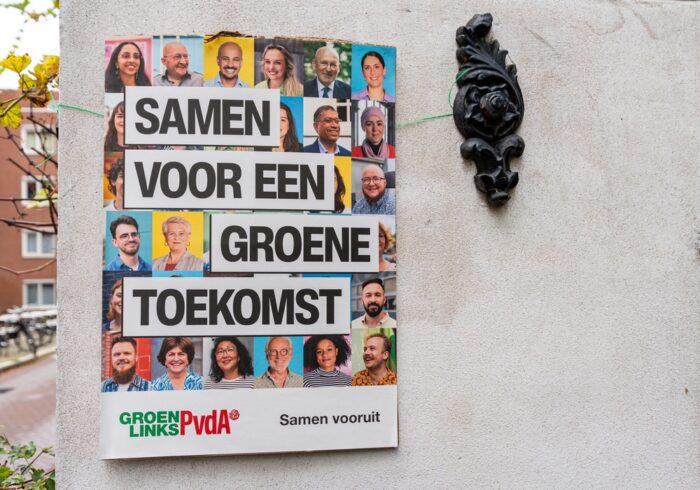The Progressive Post
Electoral hold-up in Romania

Romania’s Social Democratic Party (PSD) won the recent Romanian legislative elections, with around 30 percent of the votes and more than 34 percent of the seats in Parliament. Despite these results and the huge negative impact of the pandemic on Romania, we now have a political blockage. The conservative President, Klaus Iohannis, refuses to recognise the electoral results, and to nominate the candidate for Prime Minister proposed by the PSD. This despite the resignation of the government of PNL leader Ludovic Orban (from the President’s own party), who has recognised the defeat. This situation leads to a genuine electoral hold-up.
According to political customs and constitutional provisions, the party winning the elections must be invited by the President to nominate a Prime Minister, a decisive element in forming the next government. If this mechanism is broken, the consequences can be very profound. Nevertheless, the President Klaus Iohannis, who, according to the Constitution must remain impartial, has decided to continue his direct involvement, like he did during the campaign when he repeatedly attacked the PSD, going so far as to blame the Social Democrats for the coronavirus crisis. These direct interventions made him to refer publicly, and repeatedly, to the political parties that must, in his view, form the new government.
Despite this and despite his constant political pressure, the parties he nominated are incapable of reaching a consensus. After their recent official consultation, he refused to accept any nomination, even though he acknowledged as positive the idea of forming a large coalition under the candidate the PSD proposed for Prime Minister: the well-known doctor Alexandru Rafila, the Romanian representative at the World Health Organization.
This controversial and non-democratic attitude, at odds with international standards, was explicitly criticised in the OSCE preliminary report on the elections that took place one week ago. In the same document, experts have also criticised the wide use of media by the PNL government officials running for the Parliament, affecting the impartiality of the media coverage of the campaign.
The recent legislative elections lead to a fragmented Parliament with five parties entering the Parliament: the Social Democratic Party (PSD), with close to 30 percent of the votes, the conservative National Liberal Party (PNL), the previous main government party, with 25 percent, the Save Romania Union-PLUS Alliance (USR-PLUS, 15 percent), the far-right Alliance for the Union of Romanians (AUR, 9 percent), and the Democratic Union of Ethnic Hungarians in Romania (UDMR, 6 percent). In addition to these parties, ethnic minorities organisations in Romania are also represented in the Chamber of Deputies, in accordance with the progressive constitutional provisions, drafted when the PSD was in power.
The elections have been tougher than expected. During the entire campaign, PSD was attacked systematically, and Social Democrats were called a ‘red plague’, an insult against Social Democrats that was used by the fascists in the past. Lucky enough, people wanted something else. Romanian citizens decided to condemn this attitude and largely voted against the PNL that dropped by more than 15 points in the opinion polls in just a couple of months.
Romanians gave Social Democrats a clear mandate to lead the country during this difficult medical, social and economic crisis. The main reason for this success is due to the promise made by the PSD to form a government composed of experts in different fields, people with the highest morality and professional integrity, capable of finding the best solutions in the current situation and make people feel safe again.
After the electoral fall of last year, when the party lost the government and when down to 20 percent of the votes at the European elections, PSD decided to revise profoundly the list of candidates, and apply significant ethical, legal and moral filters. Contrary to other parties, PSD decided to completely take off the list all candidates under legal investigations and it also refused to support those having taken nationalistic stances.
The goal is to accelerate the modernisation process but also to make a significant change capable of rebuilding confidence in the only left-wing party in Romania. This attracted some of the most well-known doctors in Romania specialised in pandemics that decided to join the ranks of the PSD and ran for these elections.
At the same time, the party started to reiterate again its role as a promoter of European and Transatlantic values, recalling Romanians that it led the country into the European Union and NATO. For the first time, after many years, the European Social Democratic family openly supported the PSD. It is the start of a difficult but necessary process, designed to redefine the PSD as a strong Social Democratic party by revising its political program. The reform is only at the beginning but seemed to have convinced a significant part of Romanians. Of course, the process needs to continue for the PSD to regain its strength.
The history of Romanian Social Democrats has always been difficult. PSD is one of the few historic parties in Romania, founded almost 130 years ago. Banned by the personal dictatorship of King Carol II, because it was an active opposer of the Axis powers, the party was later among the firsts to be outlawed by the communist regime. Many of its historical leaders were victims of political repression and many died in prisons.
The recent legislative elections have given PSD the democratic legitimacy to nominate a Prime Minister and try to form a government. The Social Democrats are ready to govern in a large alliance that provides a stable government for Romania that can help the country during this difficult pandemic.
But not with anyone. PSD completely refuses any alliance with the new far-right party AUR that entered the Parliament, even though leaders of this new party have praised PSD during the campaign. PSD is the party which has legally defined xenophobia and anti-Semitism as socially unacceptable crimes that must be countered and that will be punished if committed. It is also the PSD that promoted the legislation banning the use of symbols with a fascist, racial, xenophobic character and that has forbitten the promotion of persons guilty of crimes against humanity. Therefore, Social Democrats understand very well that they cannot afford to encourage any extremist agendas. PSD has a huge responsibility in the current context. This is why Social Democrats have launched an international call in support of a legitimate government in Romania and the respect of the elections.
PSD cannot allow Romania to become like Poland or Hungary under the influence of a conservative right-wing party. The European Union should not accept that. Social Democrats and progressive from all over the world should not allow it. If we do not fight for the respect of the elections now, our social and democratic values will be in danger and it will be very difficult to stop the vicious circle it triggers. The political hold-up of Romania must end now.




